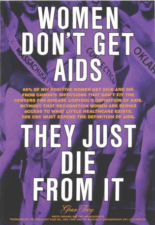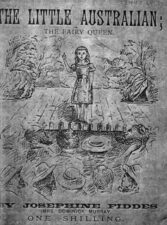
Sue Neacy
WHN Admin.
Introduction to Sue Neacy: Unfinished Business and More Unfinished Business
As a percentage of the population people at tertiary institutions in 2012 58% of the domestic students (as opposed to the large numbers of overseas students who study at Australian tertiary institutions) were women. Although tertiary institutions are primarily public, there are also private institutions offering higher education. Historically, tertiary education has been encouraged, usually through government endeavour to assist students economically. Another feature of encouragement was the financing of universities that the Menzies Liberal Government made an important part of their time in government at the federal level in the 1960s. However, for women, the 1940 Curtin Labor Government’s action on scholarships was an important feature of the increase in their numbers at universities. The new scholarships, unlike the ones they replaced, were to be open to women as well as men. Unlike other Australian universities, the University of Western Australia, established in 1911, was non-fee paying from its inception. This innovation was then replaced with scholarships, in an attempt to keep the university’s finances intact but with the regard for equality in education endorsed by its founder Winthrop Hackett. This was to change again, along with the rest of Australian universities when the Whitlam Labor Government abolished fees in January, 1974. This did not change until the introduction of the Higher Education Contributions Scheme in 1989, under which a $1800 fee was paid by the student, the Commonwealth contributed the remainder. Payment of the student’s fee could be postponed until they were in paid work and the repayment could be made through the taxation system. Further changes have been made; moving rapidly away from the generosity of the non-fee paying period, through to the current system where fees have been deregulated. Some students continue to be supported by the government.
However, even in the halcyon days of free education at the University of Western Australia many students had to take on paid work as well as their studies. Sue Neacy was always a political person, but the work she undertook in the early part of her degree was to lay a strong foundation for her commitment to a political life, including the fight for workplace reform. In ‘Unfinished Business’ Neacy tells the story of one of her ‘holiday’ jobs:
UNFINISHED BUSINESS
Sue Neacy
When I started out in the world, I’d already decided my role was to do my bit for women in the workplace. One of my first jobs was in the office of a draper/carpet layer doing wages. At this time women’s wages were by law lower than men’s.
My Junior – a somewhat buxom lass – complained that the foreman carpet layer chased her around the office during the lunch time when I was absent. I urged her to tell the boss. She did. He sacked her on the spot, telling her that the foreman was more useful to him than her. I also left shortly afterwards.
Years later I was working my way through Uni. (the University of Western Australia). For the long unpaid vacation, I took a job in the steam laundry of the local asylum. We were divided into teams – the Poms, the Slavs, the Italians and ONE aboriginal, given the crummiest job of all, sorting maggot ridden tea towels. I was the only other Aussie. When I spoke to her about this, she confessed she didn’t mind, as she got paid more for doing it.
The rest of us were on big machines that took wet laundry, steam dried and folded it. We were carefully divided into respective ethnic groups, with one male supervisor. I was on the shirt machine with the Poms. A comparatively light job despite the heat in high summer.
Trouble began when the bigger hospitals had a public holiday and shipped their laundry to us, doubling the work. We went on a “go slow”. I was soon transferred to the Slav’s machine, of sheets and bedspreads.
The Slavs admired the fact that I was a student. As for their ideology, many had fought in the hills with Tito. We got on well. They took great care of me, making sure I didn’t “do” my back with the heavy bedspreads, teaching me how to look after myself physically.
Then all hospital laundry services were privatised. In talks to us, we were assured the hours and pay would remain the same.
I left before the change-over to return to Uni. But of course, the new guys reneged on the pay and conditions and it ended up with a 3 month lock-out. I wept for the ladies I had come to love.
Not a wonder I sat and watched the movie “Suffragette” and bawled my eyes out.
Sue Neacy lives near Fremantle, Western Australia and writes detective novels featuring Peggy d’Sousa, all set in Western Australia. Her first, Murder in Northbridge (Artemis, Melbourne) is located far distant from the University of Western Australia where she studied while taking ‘holiday’ jobs such as that described in Unfinished Business. The glamourous environment featured in For Old Times Sake (Author’s Choice Press, USA) is a far cry from Sue’s political activities described in More Unfinished Business. However, Mean Streets Echo (iUniverse Inc) may reflect some of the realities that attended being an worker in low paid jobs, an activist and student in the 1970s. The last two books are available on Amazon and eBook. Sue is also writing another Peggy novel and has just completed an historical novel, Mark of Borgia.
Thank you to Clip Art for the images.


